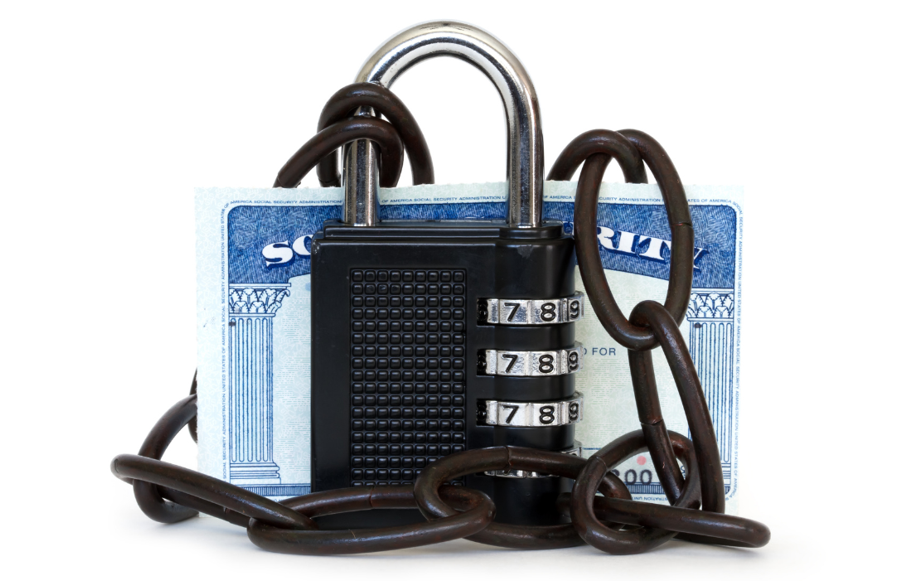Has Your Social Security Number Been Leaked? Here’s How to Check and What to Do Next

These days, it’s not uncommon for Social Security numbers (SSNs)—one of the most critical pieces of personal information—to end up in the wrong hands. Thanks to data breaches at companies, government agencies, and healthcare providers, millions of SSNs have made their way onto the dark web. But how much of a problem is this?
Spoiler: It’s a big deal. Here’s why your SSN matters, how to check if it’s been compromised, and what steps to take if it has.
Why Is a Leaked Social Security Number a Big Deal?
Your SSN is a key to your identity. With it, criminals can access your personal and financial information, take out loans in your name, or even open fraudulent accounts. Sometimes, the damage doesn’t show up right away—hackers may hold onto your information for years before striking.
The Risks of a Compromised SSN
If your SSN is stolen, it could lead to:
- Identity Theft: Fraudsters can use your SSN to open credit accounts or file false tax returns.
- Employment Fraud: Someone might use your SSN to get a job, which could cause tax headaches for you.
- Medical Fraud: Criminals can use your SSN to receive medical care, leaving you with incorrect medical records or unexpected bills.
The 2017 Equifax breach exposed the SSNs of 147 million people, and many are still dealing with fraudulent activity years later. This shows just how serious SSN theft can be.
Signs Your SSN May Be Misused
Here are some warning signs that your SSN is being used fraudulently:
- Unexpected Mail: You receive credit card offers, bills, or debt collection notices for accounts you didn’t open.
- Credit Report Changes: There are unfamiliar accounts or inquiries on your credit report.
- Tax Issues: The IRS contacts you about multiple tax returns filed under your name or denies your refund.
- Unfamiliar Medical Bills: You notice charges for healthcare services you didn’t receive.
How to Check If Your SSN Is Leaked
If you’re concerned—or just want to be proactive—follow these steps:
- Check Your Credit Report
Look for unfamiliar accounts or inquiries. You can get a free credit report annually from Experian, TransUnion, and Equifax. - Consider Identity Theft Protection Services
Services like LifeLock or Experian IdentityWorks monitor your SSN and alert you to suspicious activity. While they can’t prevent identity theft, they help you respond quickly. - Freeze Your Credit
A credit freeze prevents lenders from accessing your credit report, making it harder for anyone to open accounts in your name. You can freeze and unfreeze your credit for free. - Set Up SSN Alerts
The Social Security Administration allows you to receive notifications for certain account activities, adding an extra layer of protection.
What to Do If Your SSN Is Compromised
Act fast if you confirm that your SSN has been leaked:
- Report to the FTC
Go to IdentityTheft.gov to file a report and receive a personalized recovery plan. - Contact Credit Bureaus
Place a fraud alert on your credit report and notify Experian, Equifax, and TransUnion. - Freeze Your Credit
If you haven’t already, freeze your credit to prevent further damage. - File a Police Report
If there’s financial loss or criminal activity, report it to local law enforcement for documentation. - Notify Financial Institutions
Alert your bank and other institutions. They can monitor your accounts for suspicious activity and set up alerts.
Protect Your Business, Too
For businesses, safeguarding employee and client SSNs is just as crucial. A single SSN leak can lead to identity theft, financial losses, and even legal issues for your company. A solid cybersecurity plan—complete with data encryption, secure networks, and employee training—is essential to protect sensitive information.
Let’s Secure Your Future
Don’t wait for a data breach to take action. Schedule a free 10-minute phone consultation to discuss how we can help safeguard your information. Together, we can create a plan to protect your personal and business data from cyberthreats.

